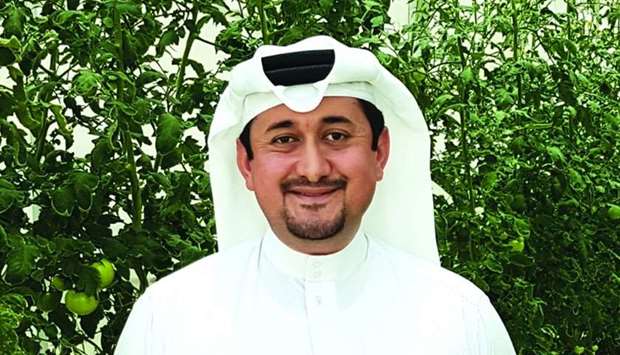Qatar’s use of advanced technology in agriculture has substantially increased local vegetable production even as the blockade against the country entered its second year, a prominent Qatari agriculturist has said.
“Increasing local vegetable production by more than 300% in less than a year is impressive and it shows how dedicated this sector is to support His Highness the Amir and the government’s vision of achieving food security,” Agrico managing director Nasser Ahmed al-Khalaf told Gulf Times.
Agrico, a private Qatari agricultural development company established in 2011, produces organic vegetables and fruits year-round in Al Khor and aims to help Qatar achieve food security.
Al-Khalaf said they expanded their high tech and locally developed greenhouse to other farms in the country under Agrico’s management.
Out of the 1,400 registered farms in Qatar, he noted that around 300 are active and have been continuously increasing their production since last year.
“The number of new (active) farms is growing and it means that some non-productive farms have turned into producing farms,” al-Khalaf explained.
“Many farms (or even houses) are now producing high quality organic fresh produce all year long without being affected by the outside environment,” he pointed out. “Other farms also developed themselves by using greenhouses with cooling pad system, which is adequate for some types of vegetables.”
The country’s daily consumption reaches around 600 tonnes of vegetables and 400 tonnes of fruits, which can be achieved locally by operating 6-8mn sqm of greenhouses, he noted.
Al-Khalaf said hydroponics system can also save 90% of water consumption compared to conventional farming methods.
He cited the uniqueness of Agrico’s greenhouses saying such technology is suitable for Qatar’s environment, even during the summer.
“Other greenhouses imported from outside have different cooling systems which are not suitable for our environment,” he said. “However you can still grow some types of vegetables in it but not all.”
Agrico is also experimenting on growing organic papayas and other fruits such as melon, watermelon and pomegranate.
“It is a only matter of time and people will see Qatar not only self-sufficient in vegetable production but also could start exporting its products to other countries (with the use of hydroponics),” said al-Khalaf, adding that such technology is also suitable for livestock, poultry and fish farming.
Currently, Qatar is producing 1,000 tonnes of fresh water fish annually and hopes to increase production in the near future with the use of modern technology to meet the growing demand.
A senior official from Qatar’s Ministry of Municipality and Environment’s Aquaculture Department earlier cited the completion of the QR237.7mn Aquatic Fisheries and Research Centre in Ras Matbakh.
The new state-of-the-art facility aims to develop the aquaculture sector in the country and carry out experiments and researches aimed at setting up adequate aquaculture techniques by using the latest rearing fish and shrimp technology suitable for local fish species.

